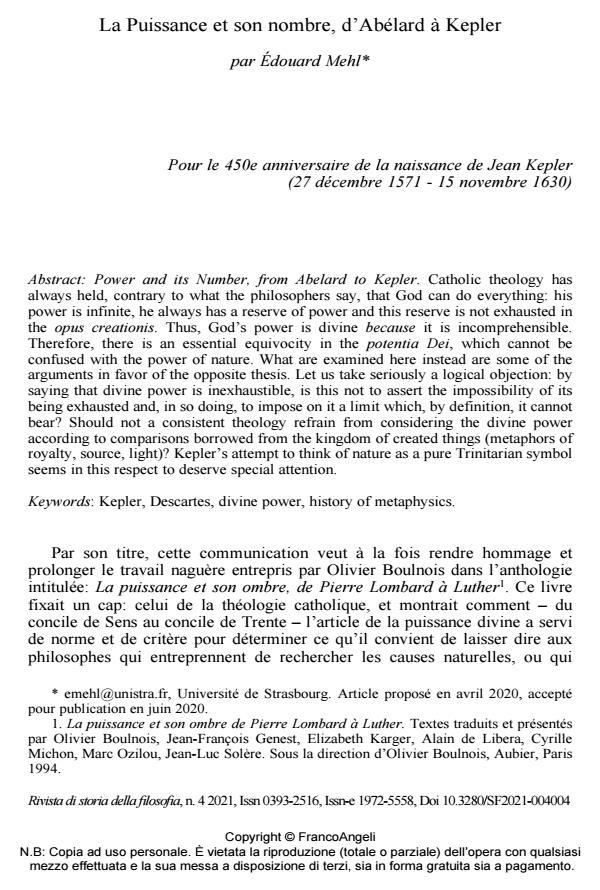La Puissance et son nombre, d’Abélard à Kepler
Journal title RIVISTA DI STORIA DELLA FILOSOFIA
Author/s Édouard Mehl
Publishing Year 2021 Issue 2021/4
Language French Pages 18 P. 668-685 File size 245 KB
DOI 10.3280/SF2021-004004
DOI is like a bar code for intellectual property: to have more infomation
click here
Below, you can see the article first page
If you want to buy this article in PDF format, you can do it, following the instructions to buy download credits

FrancoAngeli is member of Publishers International Linking Association, Inc (PILA), a not-for-profit association which run the CrossRef service enabling links to and from online scholarly content.
Power and its Number, from Abelard to Kepler. Catholic theology has always held, contrary to what the philosophers say, that God can do everything: his power is infinite, he always has a reserve of power and this reserve is not exhausted in the opus creationis. Thus, God’s power is divine because it is incomprehensible. Therefore, there is an essential equivocity in the potentia Dei, which cannot be confused with the power of nature. What are examined here instead are some of the arguments in favor of the opposite thesis. Let us take seriously a logical objection: by saying that divine power is inexhaustible, is this not to assert the impossibility of its being exhausted and, in so doing, to impose on it a limit which, by definition, it cannot bear? Should not a consistent theology refrain from considering the divine power according to comparisons borrowed from the kingdom of created things (metaphors of royalty, source, light)? Kepler’s attempt to think of nature as a pure Trinitarian symbol seems in this respect to deserve special attention.
Keywords: Kepler, Descartes, divine power, history of metaphysics.
Édouard Mehl, La Puissance et son nombre, d’Abélard à Kepler in "RIVISTA DI STORIA DELLA FILOSOFIA" 4/2021, pp 668-685, DOI: 10.3280/SF2021-004004